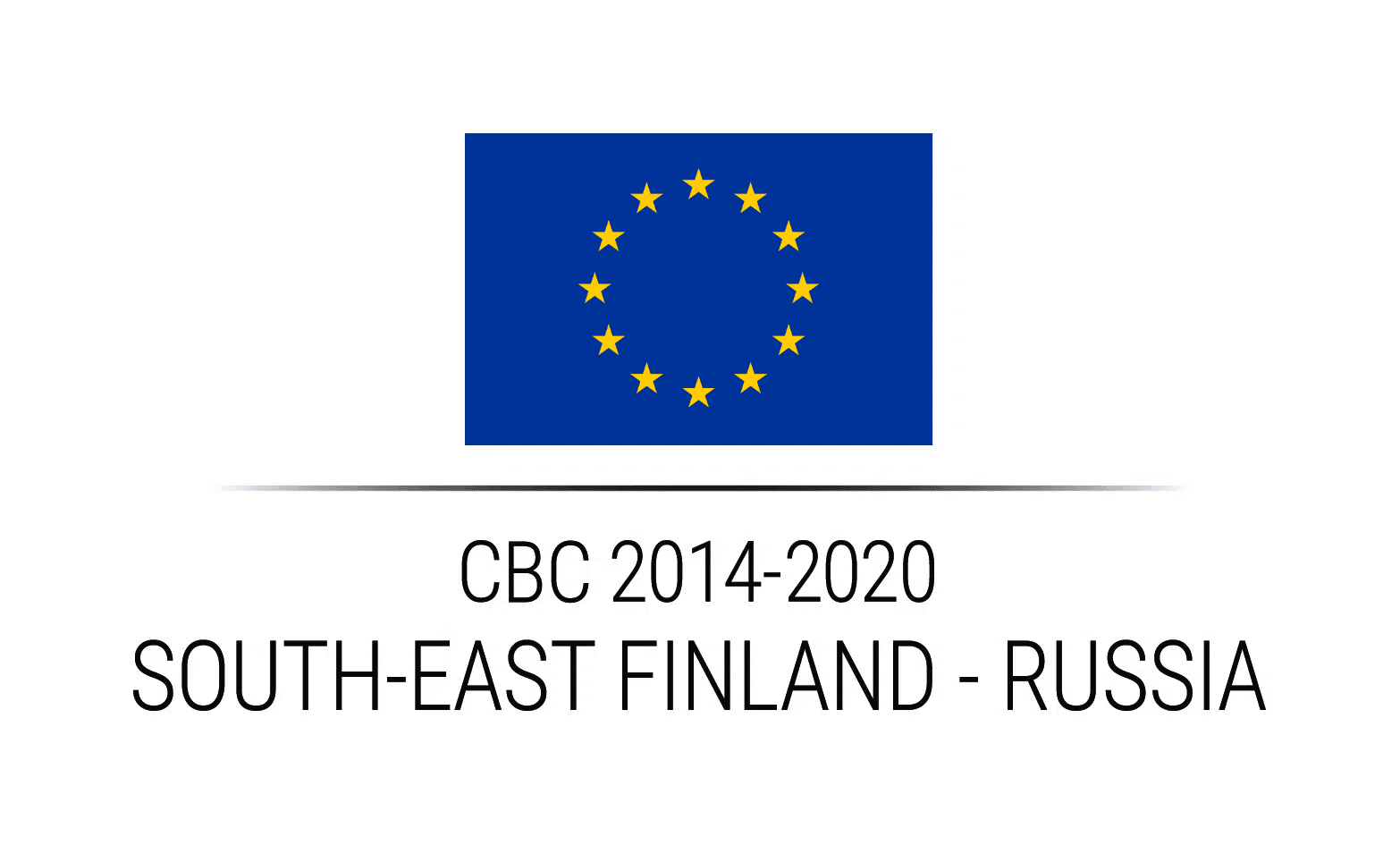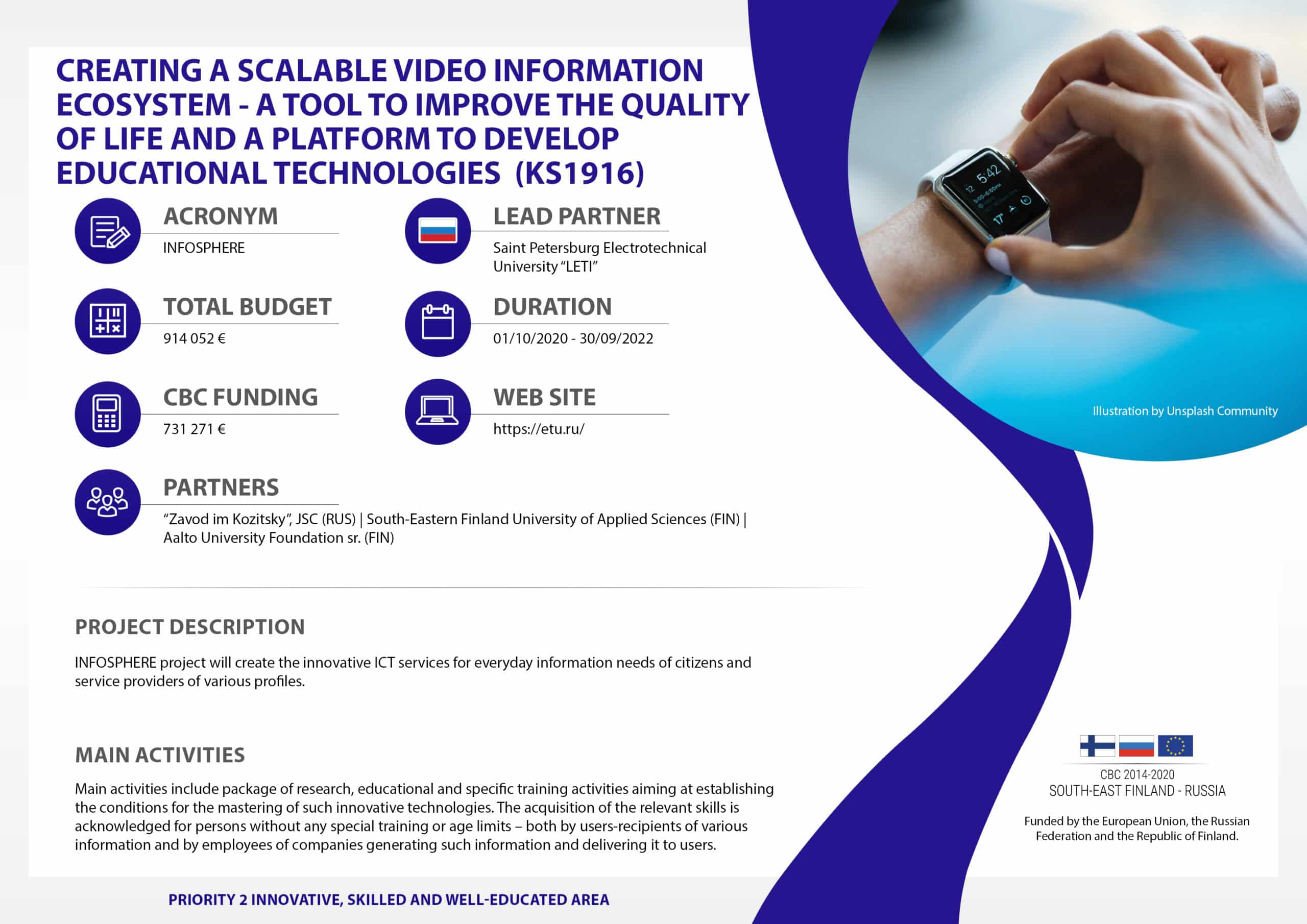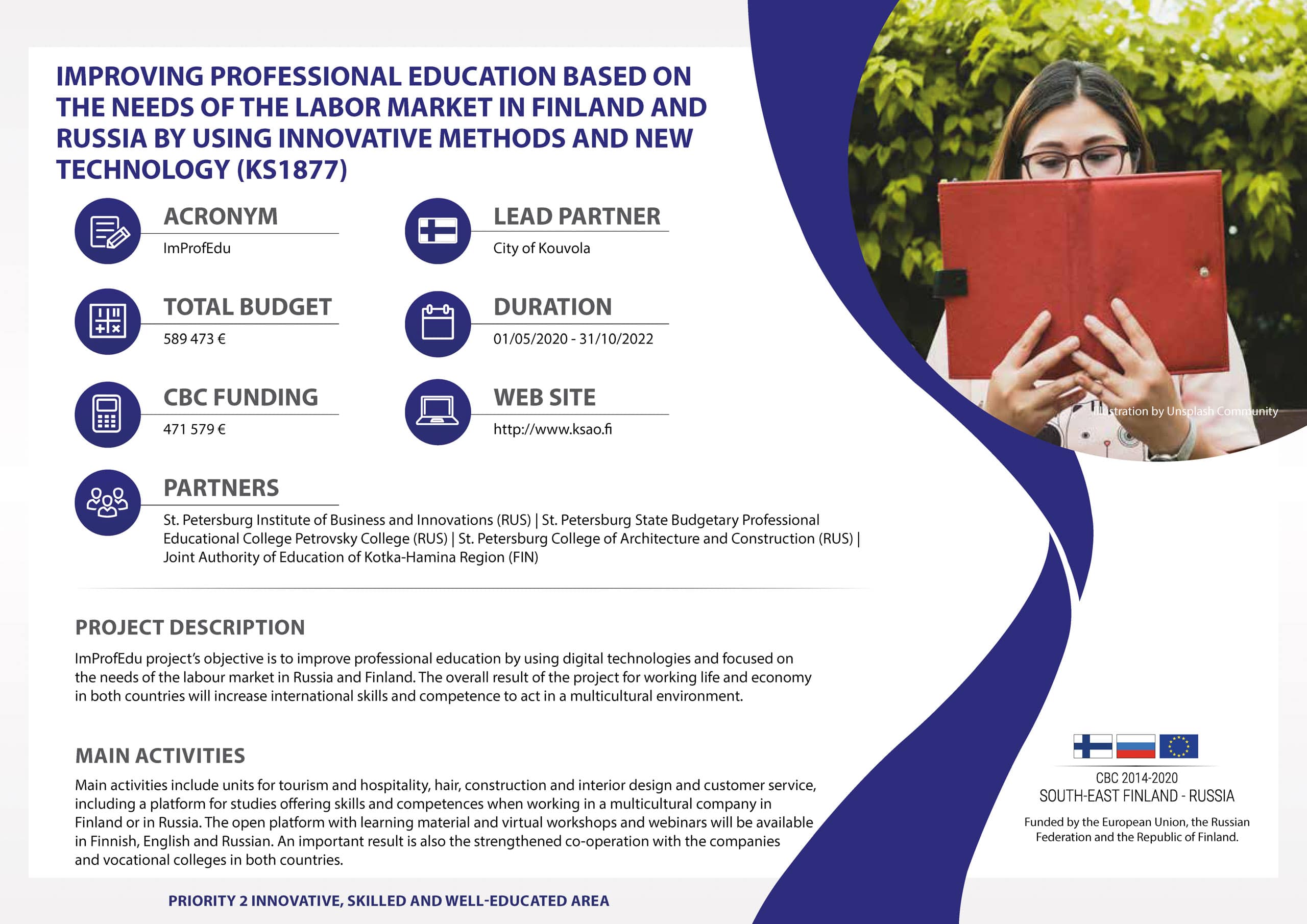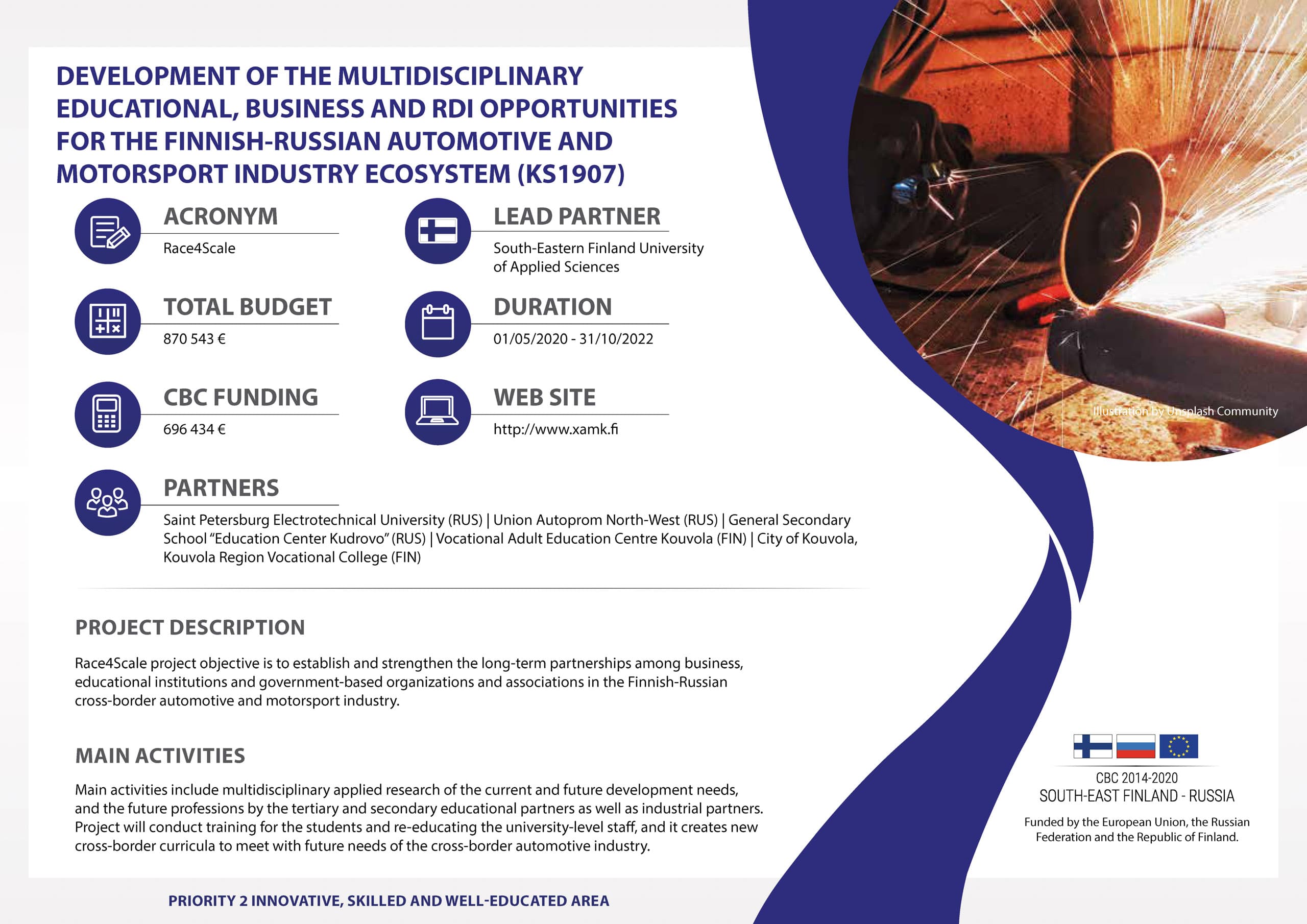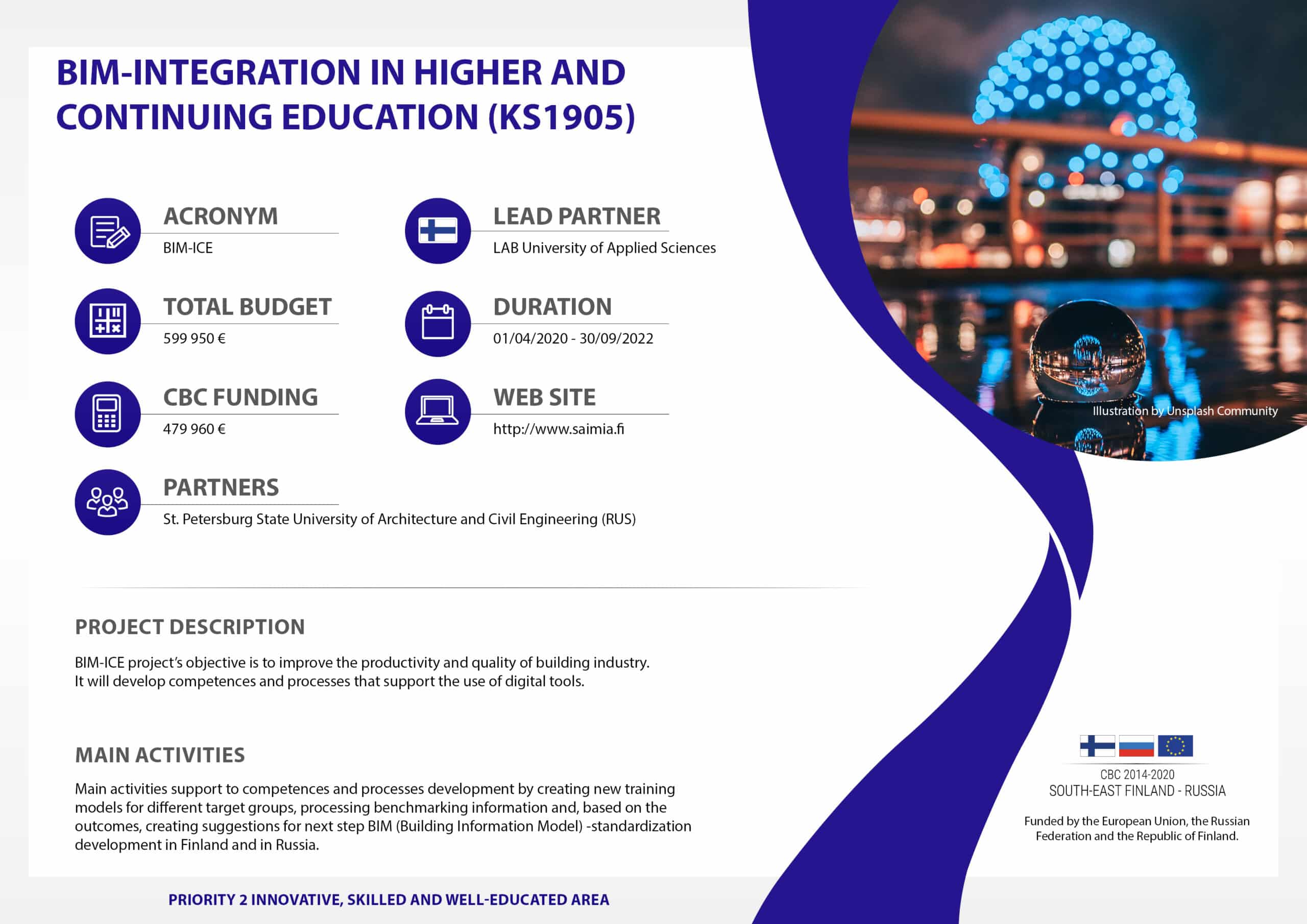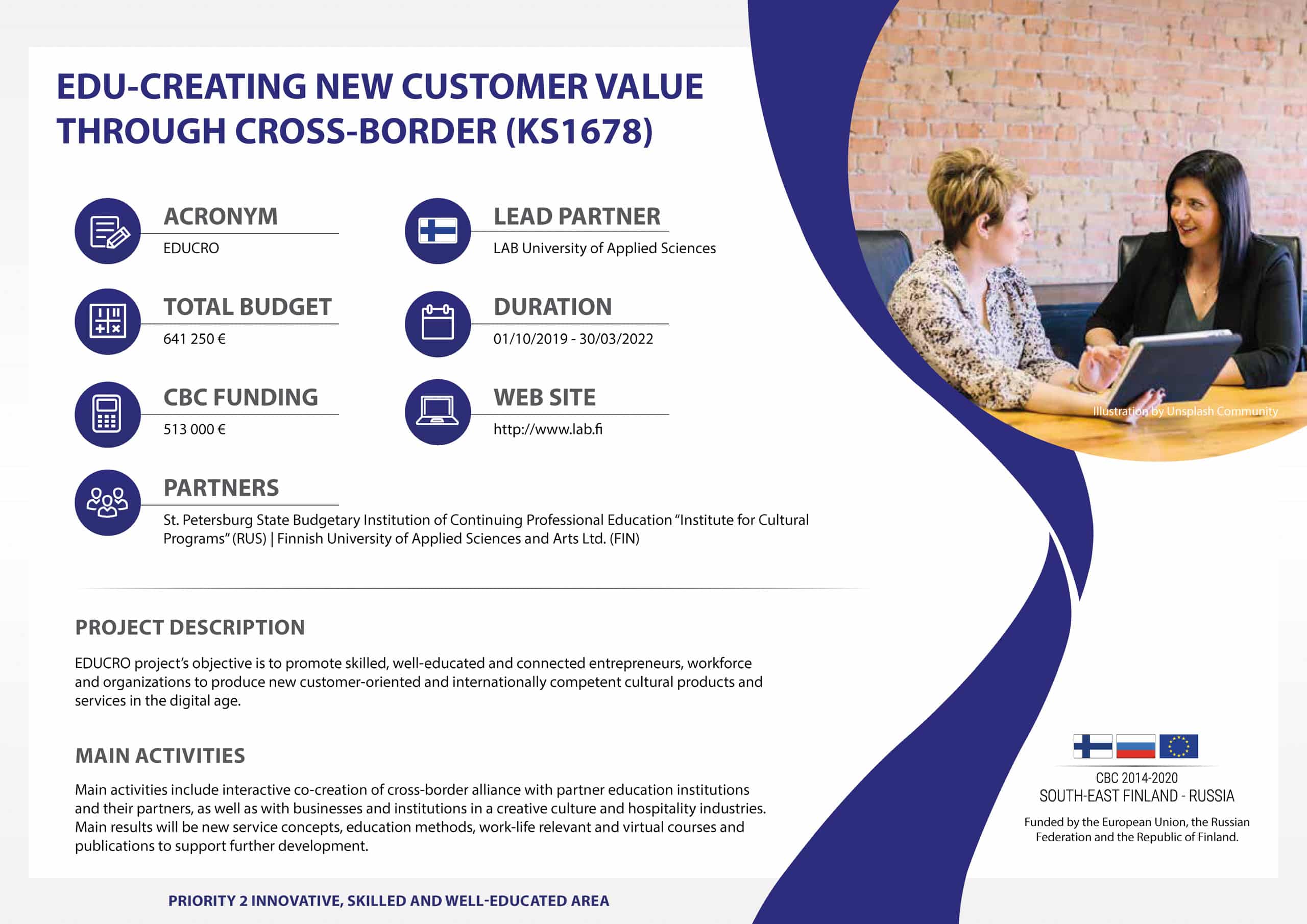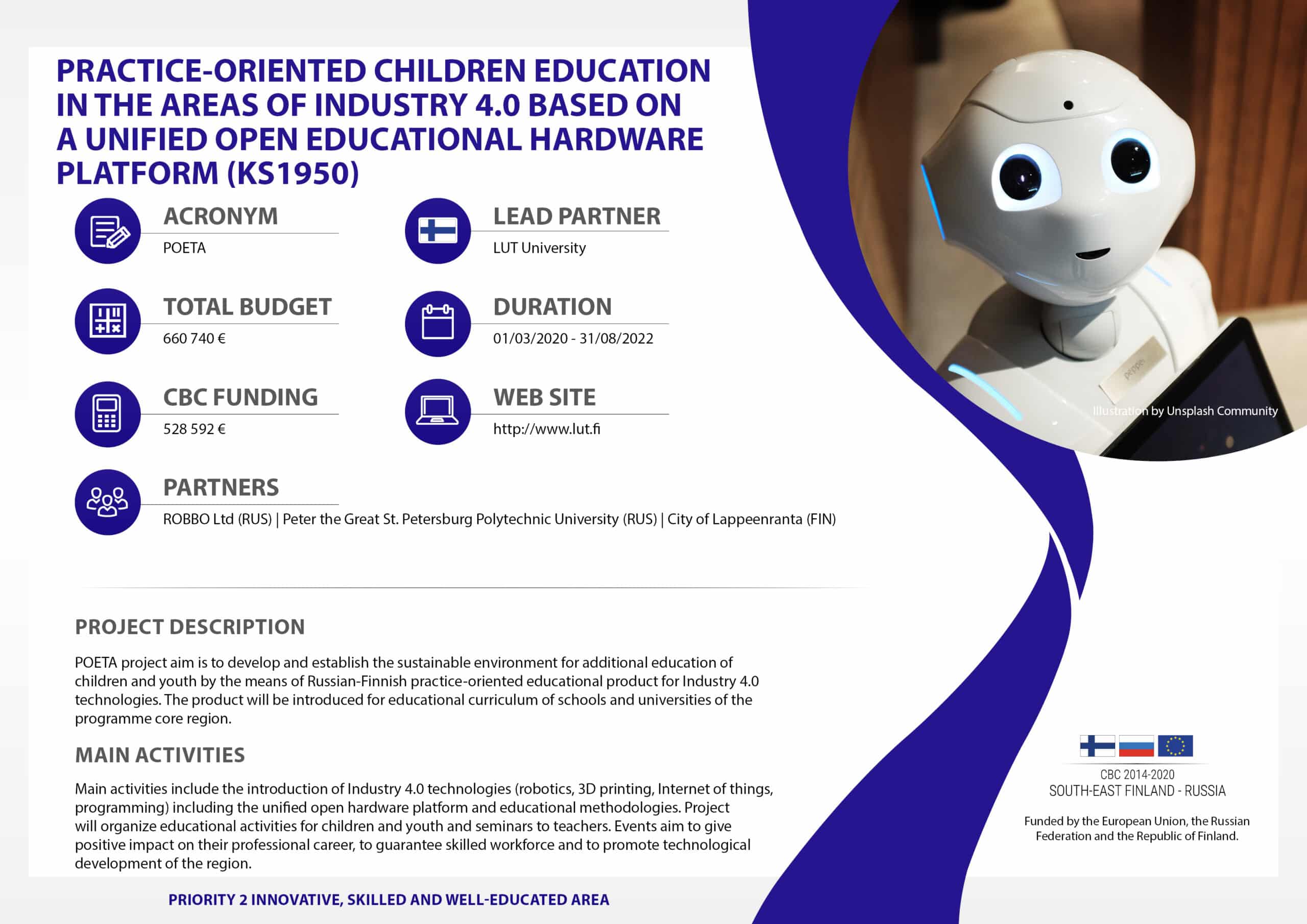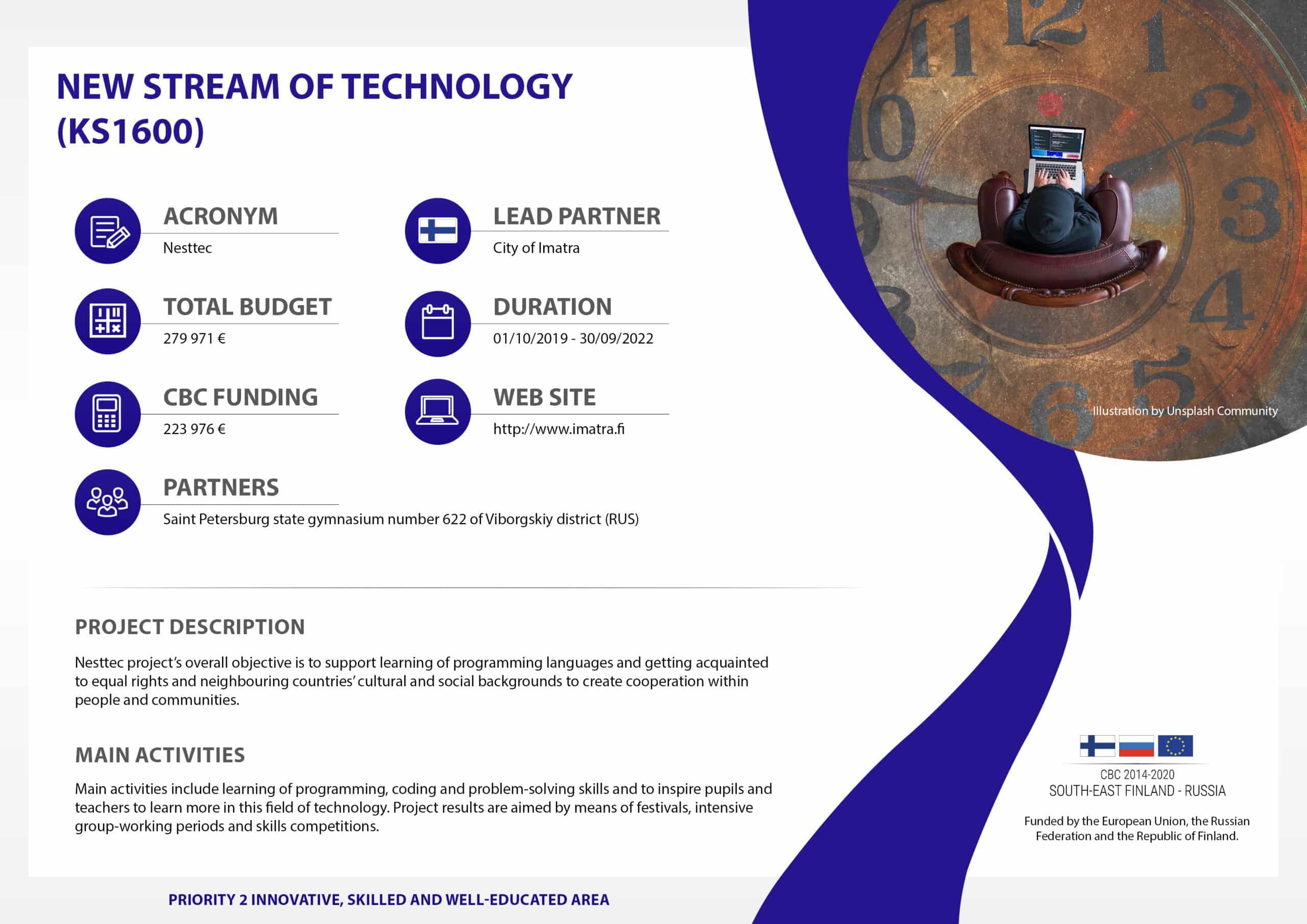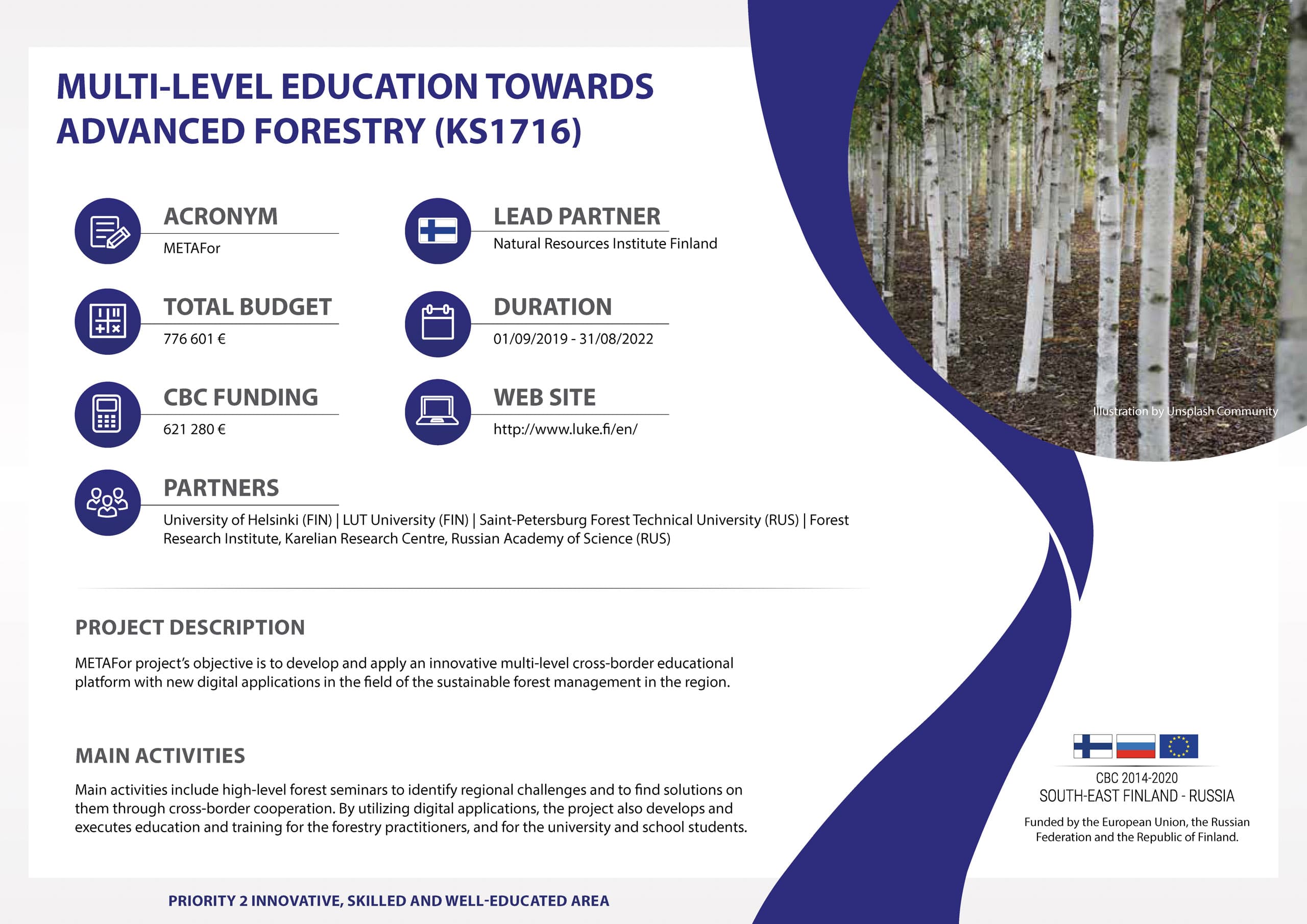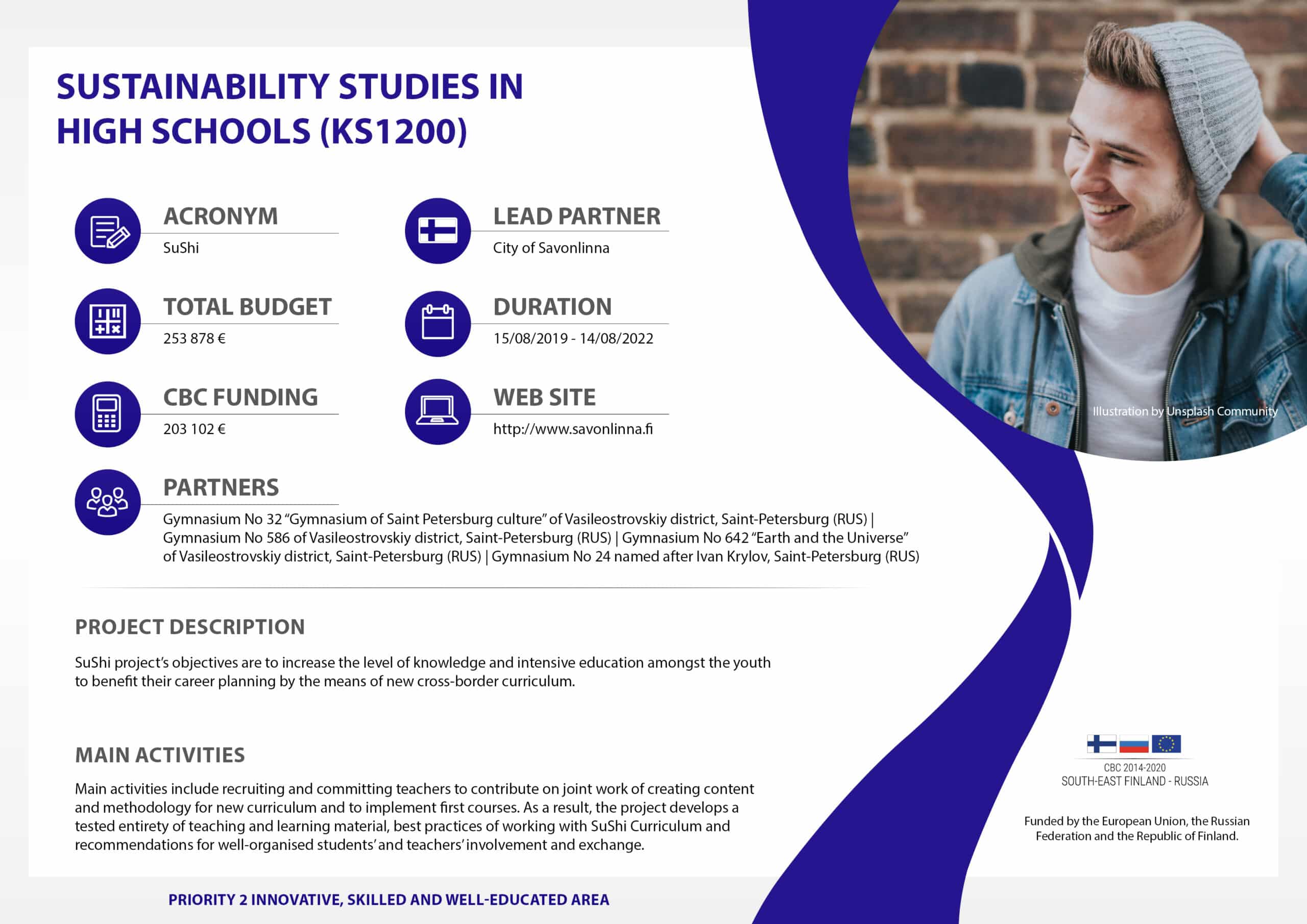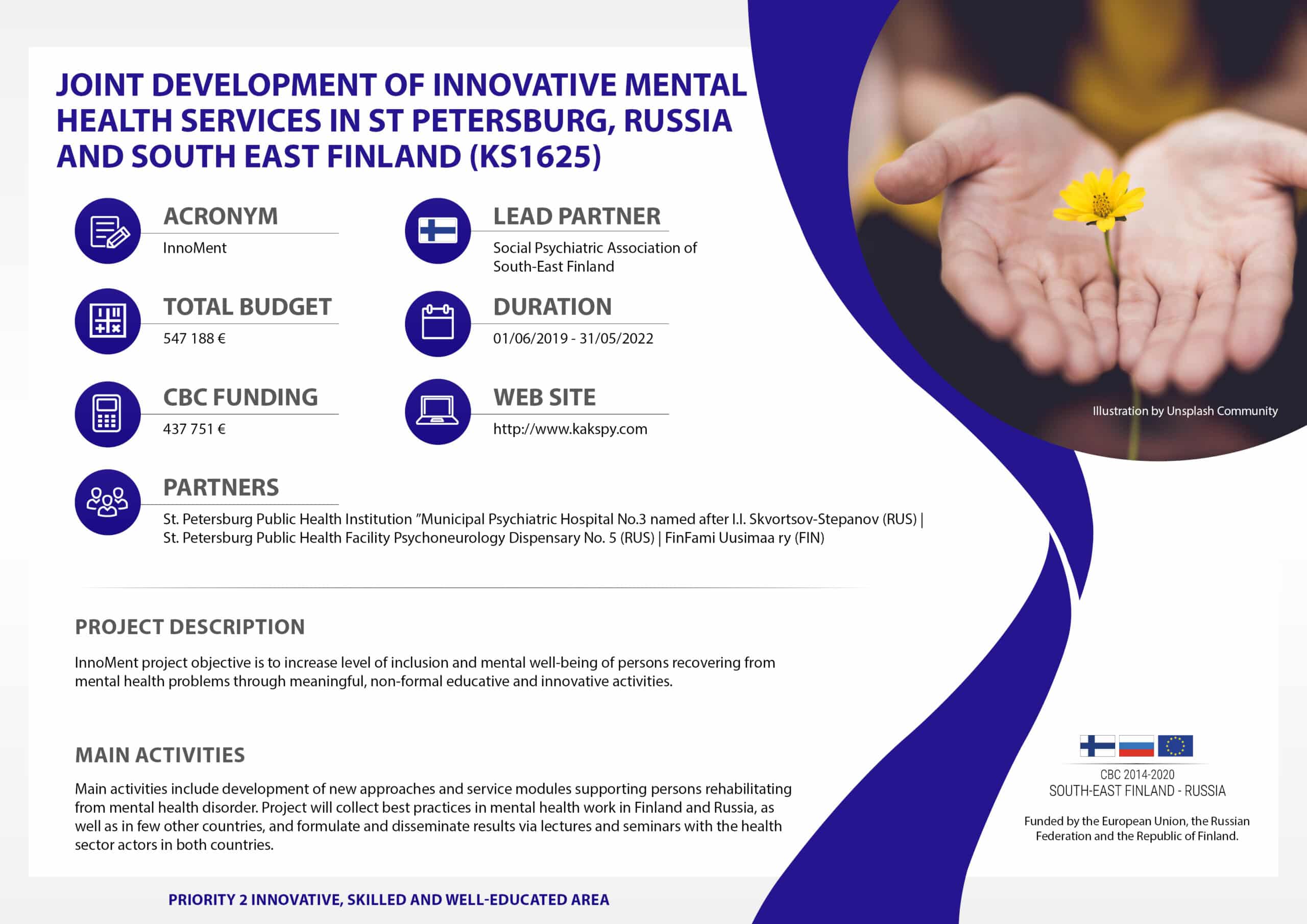The goal of the BIM-ICE project was to increase the use of building information modeling (BIM) in construction industry and develop education in the field in Finland and Russia. The purpose was also to guarantee the availability of skilled labor and improve the quality and productivity of the construction industry by developing new learning methods and increasing knowledge of BIM.
The project was divided into four work packages. In work package 1 a situational picture of the level of BIM in the construction industry, as well as the provision of BIM education in Finland and Russia, was studied as the starting point for the project. As a result, an up-to-date situational picture of BIM was achieved and described by means of surveys. With the first study, the state of BIM in construction engineering education was investigated on a wide scale in both countries. The second study was aimed at operators in the construction industry. Further education needs and opportunities emerged, which, according to research related to education, were not offered by that moment.
In work package 2, the focus was on developing BIM education at universities for university students. The project developed new ways of education as well as education processes and technologies. In the project, both the BIM summer school and the BIM project work course were developed as cross-border cooperation, BIM championship events were organized, new augmented reality technologies were introduced, and new learning materials were produced. In this part of the project, new potential was also created to tandardization and learning related to European and international BIM standards, for example, by compiling and defining the basic concepts.
The focus of work package 3 was the supply of educational products for working life. In particular, the planning of the courses focused to the training needs raised in the work package 1. Courses were produced and piloted during the project based on the internationally recognized modular education concept: skills are built step by step as a learning path that also supports continuous learning. In the first step, a BIM basic knowledge course, which was deepened in the following steps with an OpenBIM course (Russia), an inventory modeling course, and a parametric modeling course.
As measures to implement the learned and produced knowledge in work package 4, the international BIM situation was clarified. The project investigated the BIM maturity level of selected European countries, for example in terms of used standards, guidelines, technologies and use cases. Numerous partner companies also participated in the project. They for example gave thesis assignments, participated in the development of learning materials and pilot courses and offered pilot sites for use cases and new technologies. The project also offered training for university teachers and experts.
Through the project’s BIM-ICE MOOC platform, a wide collection of the project’s concrete results in the form of self-study materials, course materials, demo videos, reports, presentations and articles are distributed at: BIM-ICE MOOC
View this project in keep.eu
